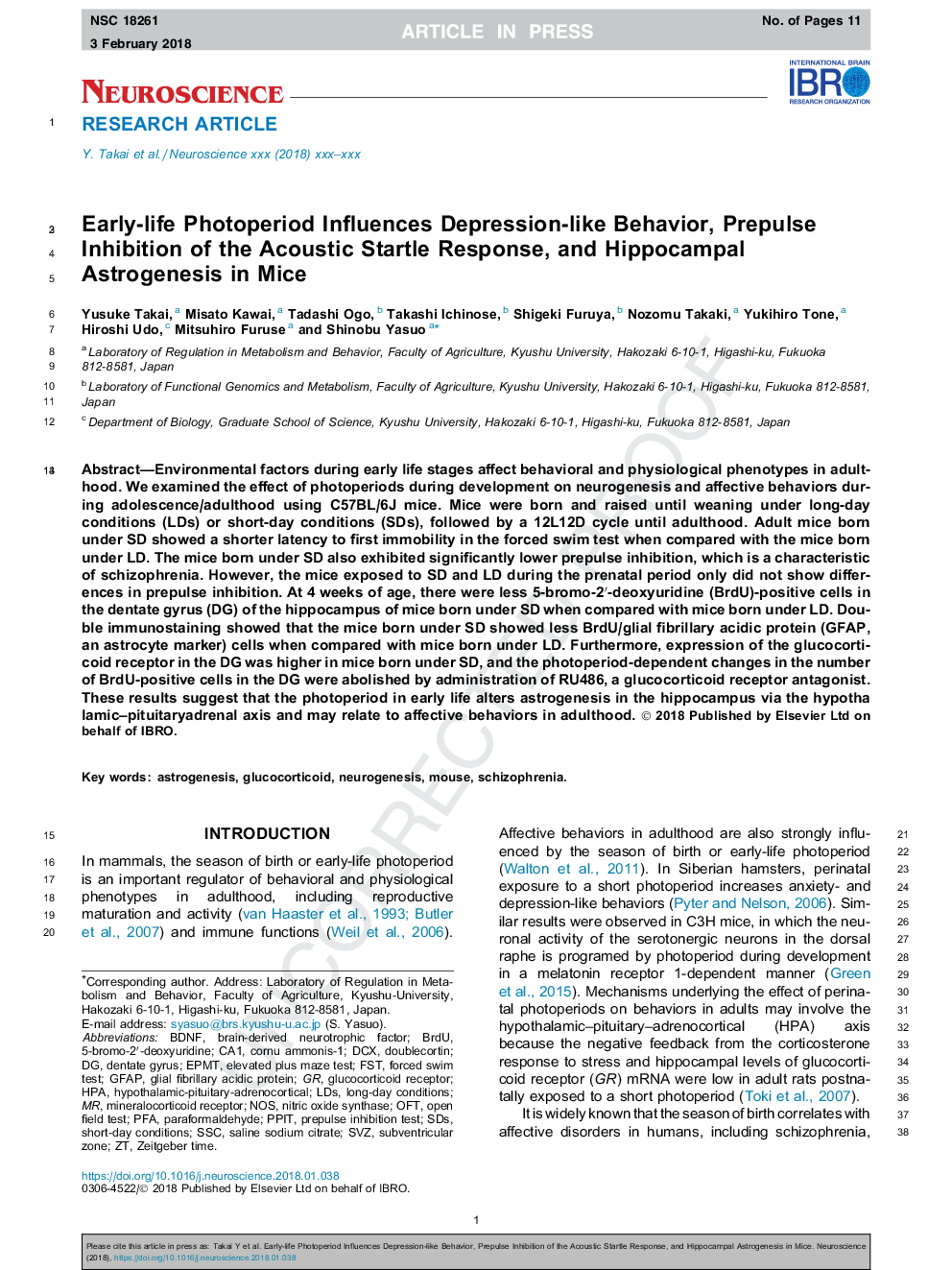ترجمه فارسی عنوان مقاله
تأثیرات فتوپریود در دوران اولیه رفتارهای افسردگی، مهار پیشگیری از واکنش شروع واکنش صوتی و استروژنز هیپوکامپ در موش
عنوان انگلیسی
Early-life Photoperiod Influences Depression-like Behavior, Prepulse Inhibition of the Acoustic Startle Response, and Hippocampal Astrogenesis in Mice
| کد مقاله | سال انتشار | تعداد صفحات مقاله انگلیسی |
|---|---|---|
| 119677 | 2018 | 11 صفحه PDF |
منبع

Publisher : Elsevier - Science Direct (الزویر - ساینس دایرکت)
Journal : Neuroscience, Volume 374, 15 March 2018, Pages 133-143

